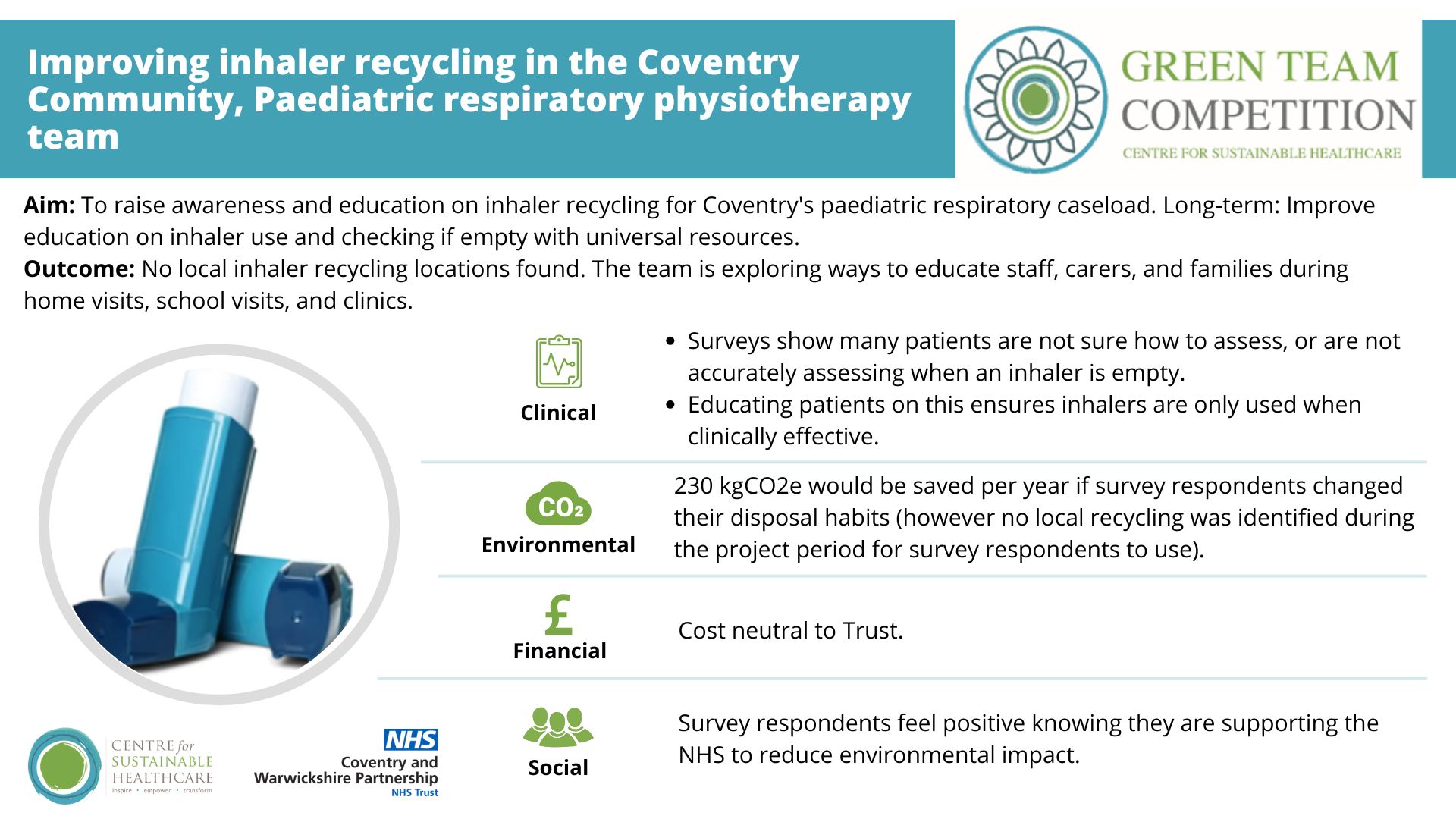Project completed as part of the Coventry and Warwickshire Green Team Competition.

Team members
- Annika Shepherd- CWPT Advanced Respiratory Physiotherapist
- Lisa Wong, Physiotherapists- CWPT Clinical Specialist- Respiratory
Setting / patent group: paediatrics / patients requiring inhalers.
Issue:
- Inhalers account for 3% of the NHS carbon footprint
- pMDIs contain HFA gas and plastics
- 25% of children / young people on our caseload use high carbon pMDIs, multiple inhalers and lack of knowledge
- NHS plan “Delivering a Net Zero NHS” (2020) outlines reducing carbon emissions from inhalers
- Initial scoping: switch to DPI or prescribe leukotriene receptor antagonist but these options are more challenging to implement in children / young people and alternative prescribing strategies to be sought.
Intervention:
A survey was implemented to understand current understanding and behaviours related to recycling of inhalers and knowing when inhalers are empty.
We also engaged with local pharmacies to identify local areas where inhalers could be taken for recycling.
Outcomes:
- Knowing when the Inhaler is empty: 75% reported they knew how to assess this by “shaking, listening, weight, no visible or poor spray, no taste”. This is not the most accurate way to assess if the inhaler is empty identifying that further education could support optimising inhaler use.
- Current local advice & availability of recycling:
- All pharmacies accept inhalers however we could not confirm if any recycle (e.g. one collects for incineration)
- Local council advice varies
- Generally patients dispose in black bins or recycling at home
- Poor recycling information
Key learning point
The authors learnt that recycling of inhalers is far more complex and difficult to make an impact. The project has enabled the team to build positive relationships with the wider respiratory care community within the Midlands. In addition, it has highlighted a review of inhalers usage in schools to explore if there is inhaler waste i.e. how many are used, how are they disposed of, are the inhalers empty, do they regularly expire etc, and actions to reduce this impact such as where inhalers are collated, collected and taken to a recycling point by a nominated staff or school member.
The survey highlighted patient empowerment and education can impact and change current inhaler usage and disposal practices and support the NHS in reducing the environmental footprint of poor inhaler disposal and incorrect usage. Supporting and optimising inhaler prescribing, inhaler technique and usage will improve patients’ respiratory health and can have wider impacts on reducing carbon emissions than inhaler recycling only.
Please log in or sign up to comment.